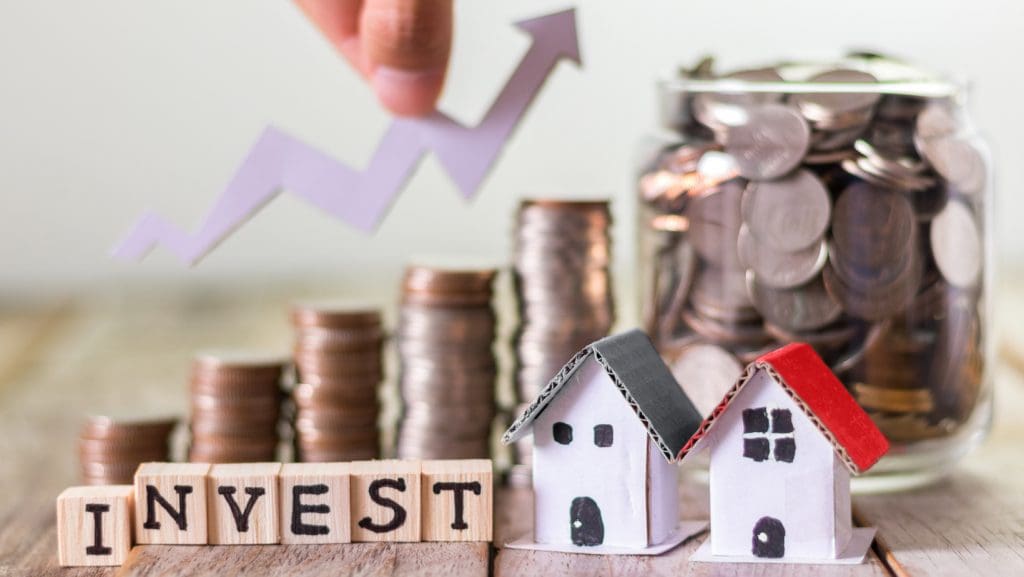When you first decide to take your future into your hands and become an investor, you probably feel relief and excitement. Quickly followed by information overload and confusion.
Here are some of the most common questions about becoming a property investor and our answers!
Property or Shares?
If you’ve come far enough to consider which of these is best for you, congratulations, you’re taking your future into your own hands! This comes down to what you understand. You don’t want to invest in something you’re not familiar with. Most of us are investors in the share market through our superannuation. By investing in property, you’re really just diversifying your portfolio.
Going into shares can hold higher risk. Banks tend to agree. They find investing in property much more stable and safe. There is no right or wrong answer. They all have pros and cons, and risks that need to be mitigated. Property is much more controlled and less volatile. And you have the power of leverage!
Leveraging is essentially using the equity in one property to purchase another. So you can use that equity as a deposit. This also means you can borrow a higher percentage against the property value.
What do you look for when buying an investment property?
There are a few steps you need to take when you’re looking to buy your first investment property. You probably already know this from our other blogs, but knowing your budget is super important. Looking at your cash flow and coming up with a budget that doesn’t sacrifice your lifestyle will help you enjoy the benefits of investing sooner. There’s no point buying a property you can’t afford! This is even more important if you’re using the buy and hold strategy.
Once you know what your can afford, it’s time for the next step! Decide what you like. Some people like to buy stand alone houses, others like apartments. This is mostly personal preference. But some food for thought… land appreciates, houses depreciate. Buying a house with land gives you the flexibility to develop later. You can also consider city vs suburban vs regional.
Follow your head or heart?
We’ve all been there… a beautiful property that makes your heart sing and a property that makes all those numbers line up. Which do you choose? Remove the emotion. Investment properties need to be all about the numbers. Renting can be a harrowing experience for a property, so looks might not endure. Ensuring your property is structurally sound and has room for any future plans you may have in the works is your focus. Set up a 10 year plan for each property and stick with it!
How do you find the right location for your investment property?
Budget and Cashflow are your best friend. Know your circumstances inside and out. The rest will fall into place. You can only go where you can afford. Look for suburbs that have good infrastructure spending in government or private sectors. But don’t get too caught up on where to buy. Delaying your purchase on a decision like location can cause more harm than good. Market growth is relatively steady so you’re better off making a decision quickly and getting into the market sooner.
How much should your property cost to make it worth while?
The property market is a steady market. Time in the market is better for your future finances, than timing. It is absolutely personal preference. You can choose to wait until you have a bigger budget and purchase a larger property. But you may be delaying the leverage benefits of buying a property as soon as you can afford it. Getting in early can give you a better chance of building wealth.
The best time to become a property investor was 20 years ago. The second best time is now.
Who do you need on your team?
First and foremost, you need a Rise High mortgage broker. We’re property investors, so we’ve learnt from personal experience as well as professional. You can contact our team here!
If you’re new to the property investing game, it can get really overwhelming. So we suggest a real estate agent. They can do a lot of the technical work and give you professional recommendations.
Next, you’ll need a conveyancer. They help with the transactions involved with the property and do the legal work.
Finally, an accountant. There’s a lot of financial needs that come with a property. Accountants can make sure you’re not missing anything and it’s all working for you.
Property surveyors and property managers are also a good extra to consider. Property surveyors can get you depreciation reports for tax deductibility. While your property manager collects the rent and deals with tenants so you don’t have to.
Becoming a property investor is one of the best things you can do for your future. If you have any more questions about becoming a property investor, contact the team at Rise High so we can help you get the most for your money.



